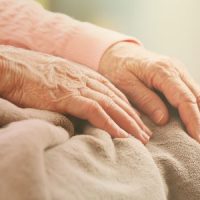What To Know About Nursing Home Slip And Falls And Your Legal Rights

Slips and falls among the elderly are, unfortunately, a common occurrence. As we and our loved ones age, muscle coordination, strength, and stability can decrease to the point where falls are always a risk. Falls on any surface can lead to injuries ranging from mere bumps and bruises to broken bones, hip fractures, and serious head injuries.
When we admit our loved ones for care at a nursing home, we expect they will be kept safe from hazards including dangerous falls. With the 24-hour care and supervision that a nursing home provides, unattended falls and related injuries should not be a concern. However, nursing home falls are an all-too-common occurrence – nearly half of the 1.6 million U.S. nursing home residents will fall at least once each year. 1 in 3 will fall twice or more. These are startling figures considering that nursing homes are expected to provide around-the-clock care and attention to residents – precisely to keep falls and other incidents from happening.
If your loved one suffers a fall at their nursing home or skilled nursing facility, you deserve to know what happened, and why.
Some common causes of falls at nursing homes include:
- Improper monitoring of patients;
- Improper training of staff;
- Medication errors that lead to dizziness, lightheadedness, or other issues;
- Failure to keep floors clear and dry;
- Poor supervision of at-risk patients while walking;
- Malfunction of bed rails, walkers, or shower equipment;
- Improper positioning of residents at beds, chairs, or tables.
These and other acts of nursing home negligence can lead to serious injuries, broken bones, paralysis, or even death among patients. To prevent the danger of nursing home falls, facilities should routinely undertake measures and protocols to ensure patient safety.
Such measures should always include:
- Proper training for staff;
- Routine safety checks of bed rails, walkers, shower rails;
- Bed alarms to alert staff when an at-risk patient leaves the bed without supervision;
- Proper administration of medications and protocols to ensure accurate dosages are given;
- Maintenance of appropriate staffing levels.
Sometimes, despite the best efforts of a facility and staff, accidents will happen. Failure to follow proper safety procedures to prevent falls, however, can lead to danger and even violate state regulations for nursing home care.
Nursing home falls involving poor care and supervision can also provide grounds for a nursing home malpractice lawsuit in Tennessee. If you or your loved one was injured in a nursing home slip or fall, legal remedies including financial compensation can be available.
The Nursing Home Litigation Attorneys at Reynolds, Atkins, Brezina & Stewart, PLLC are Here to Help if a Loved One is Injured in a Nursing Home Slip or Fall Accident
As we and our family members get older, falls become a serious risk to health and safety. A seemingly simple fall can lead to serious health consequences. Prevention of these incidents is one of the top tasks a nursing home facility faces. If you believe more could have been done to prevent your loved one from falling and suffering an injury at their nursing home, call the attorneys at Reynolds, Atkins, Brezina & Stewart, PLLC . Our Tennessee nursing home legal team has significant experience addressing nursing home issues including slip & fall accidents. To learn more today, contact our Knoxville nursing home malpractice lawyers at Reynolds, Atkins, Brezina & Stewart, PLLC by phone at 865-500-3121 or online.
Source:
ahrq.gov/patient-safety/settings/long-term-care/resource/injuries/fallspx/man1.html
